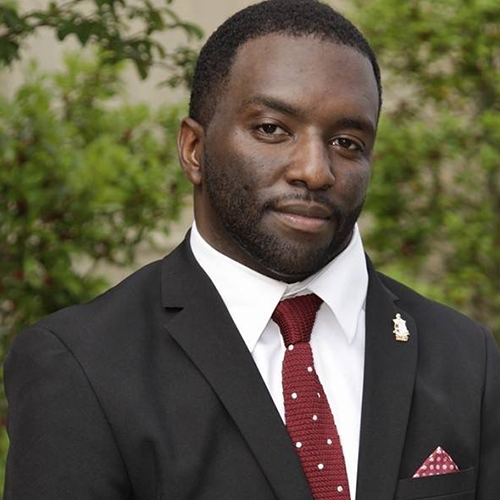Going the Extra Mile: Mentorship
Published February 2, 2018

As an educator, there are many opportunities presented, where we can help our students grow. We spend a great deal of time helping students reach their academic goals through teaching the subject content in the classroom. Yet, there comes a time when other opportunities for helping our students present themselves. These opportunities are what so many educators do on a regular basis called mentorship. Each time we teach a lectures, or assist our students in the laboratory, we have windows of opportunity to effectively reach our students beyond just teaching the subject content.
I work at a two-year college called Central Carolina Technical College, where I teach biology classes, and anatomy and physiology classes as well. I truly love working at the college level, because I can help so many students from semester to semester. At my college we have a lot of students that are the first in their families to go to college, first time ever college students, individuals who have decided to go back to school, dual enrollment, and even individuals from Shaw Air Force base. With smaller class sizes and such a diverse population, I am presented with numerous opportunities to mentor students. Building a long term professional relationship where I focus on supporting the growth and development of each student. To our students, we are viewed as an expert of begin successful in life and having a source of knowledge. This is the reason why we get questions about anything from ways to study for the course and even about financial aid issues. Our students see us as the instructor/professor that has this wealth of knowledge, because we are the main individuals our students interact with day in and day out. Therefore, it is very imperative to make sure that we educate our students, but also be that positive example that can direct them in helping them reach their academic goals.
This past semester, I had a student who was the first in his family to attend college. I notice this student, because he would not take notes in class, but did extremely well on his exams. One day during lab, I asked the young man what were his plans once he had completed all course work for the college. He looked at me, because he really did not have a clue. This allowed an opportunity for me to explain to him the potential that he has and how he could be anything that he desired. Then I asked him if he ever considered attending a four-year college. He looked at me and said, “I never thought about it, because he was the first in his family to ever attend college”. I saw this as an opportunity to explain to him how this could really help him in the long run. Before he left that day, I got on the laboratory computer and helped him found some options of schools that were in traveling distance from his home, since he didn’t want to leave home. A week or two later, he decided, and we call the admission office and he left my class with an option that he did not know was available to him. I was able to help this young man just through taking time out to get to know him and challenge him to move forward with finishing his education. This is an example of how we as educators are influential mentors helping our students with both academics and reaching goals that they do not realize they can complete.
As an educator, I can recall times when I am teaching anatomy and physiology content, and I can see the faces of my students looking perplexed. I use this as a mentoring opportunity. I will say “let’s stop for a minute and take a deep breath”, and encourage them by saying “you can do this”. Sometimes I would even tell a silly joke to help to make the learning environment more relax. I love to use the time in the laboratory to build my students through mentoring. Usually, during lab time, I get to know them and understand a little of their background. This allows me to offer any advice and mentoring if I can. My goal in my classroom is to make sure that my students have the best educational experience that one can have. Sometimes just giving an encouraging word to our students means the world. We are always in the position as the instructor/professor to help growth and development to occur in our students. We introduce them to the content that we are so passionate about, so new passions can be awaken within our students. Therefore, allowing them to make their mark in this world too.
A part of making this educational experience great, is mentoring our students so they can move forward in reaching their academic goals. Understanding just a little about who our students are, where they come from, and what their academic goals are can help us be a part of directing them in a path where they can reach their academic goals. Mentorship allows us as educators to reach out to our students and help guide them in a path of success. If we go back and think about all the wonderful people who were educators that have helped get us to where we are. I can remember how some of my favorite professor’s help guided me to be who I am today. They mentored me and always had a word of encouragement, even when I was not living up to my true potential. Yet, because of these great mentors, I am standing where I am today, so that’s why it is truly important as educators that we do the same to pave the way forward for our students to be the best they can be.